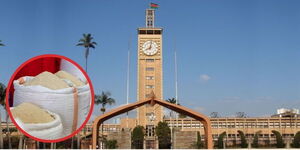Reports of substandard cooking oils flooding the Kenyan market have sparked a heated debate, with the Kenya Bureau of Standards (KEBS) now dismissing claims of a suspension on ten popular brands.
KEBS has labelled recent news circulating on the suspension of edible oils as false, warning the public against misinformation as the quality of products continues to come under scrutiny. The alleged suspension followed shocking revelations that Kenyans might be consuming cooking oils that fall short of health standards.
Why it matters: Cooking oil is among commodities commonly used in many households, and it poses a huge health hazard if substandard cooking oil is not removed from the market.
Dig deeper: However, KEBS has categorically denied these reports, terming them as misleading. The Bureau flagged the news as fake, contradicting claims that it had temporarily suspended several brands of edible oils and fats.
A letter purportedly written by Peter Kaigwara, KEBS Director for Market Surveillance, allegedly directed the Retail Traders Association of Kenya (RETRAK) to remove the products from shelves.
But KEBS maintains that no such communication was issued, instead pointing to routine inspections as part of its consumer protection mandate.
This comes against the backdrop of a Senate inquiry that exposed damning details about the quality of imported cooking oils. KEBS managing director Esther Ngari, addressing the Senate Committee on Trade and Industrialisation, revealed that substandard edible oils had found their way into Kenyan kitchens.
According to documents submitted to the Senate, imported edible oils, which entered the country between May and November 2023, failed to meet local standards despite carrying certificates of conformity.
During the Senate investigation, it emerged that the Kenya National Trading Corporation (KNTC) had engaged suppliers to import edible oils to stabilise local prices. However, of the 73 consignments that arrived, only 44 were approved by KEBS, with 23 still pending customs clearance.
Shockingly, a random test of eight samples from the approved consignments revealed that seven failed vitamin A standards, while one was found to have both insoluble impurities and low vitamin A content.
Senators voiced concerns over KEBS’ failure to act decisively despite clear evidence of substandard products. Uasin Gishu Senator Jackson Mandago questioned why KEBS had not recalled all the questionable consignments, highlighting the severity of the findings.
"When seven out of ten samples fail, it's not just an anomaly; it’s a crisis. KEBS should be sending a strong message by removing all the condemned oils from the market," Mandago challenged.
The controversy over imported cooking oils has now put a spotlight on KEBS’ regulatory capacity and its ability to safeguard consumers. The Bureau is tasked with ensuring all imports meet Kenyan standards, but the Senate hearings have raised doubts about its effectiveness.
Quality Assurance and Inspection Director Geoffrey Murira defended the Bureau’s actions, arguing that each shipment was accompanied by certificates of conformity, though inspections later proved some did not meet required standards.
With millions of litres of potentially harmful oil already on the market, consumers are left in a precarious position. Senators demanded that KEBS provide evidence of warnings issued to importers and ensure immediate corrective action is taken.
The revelations have ignited public outcry, with Kenyans questioning the integrity of the supply chain and the role of regulators in protecting public health.












